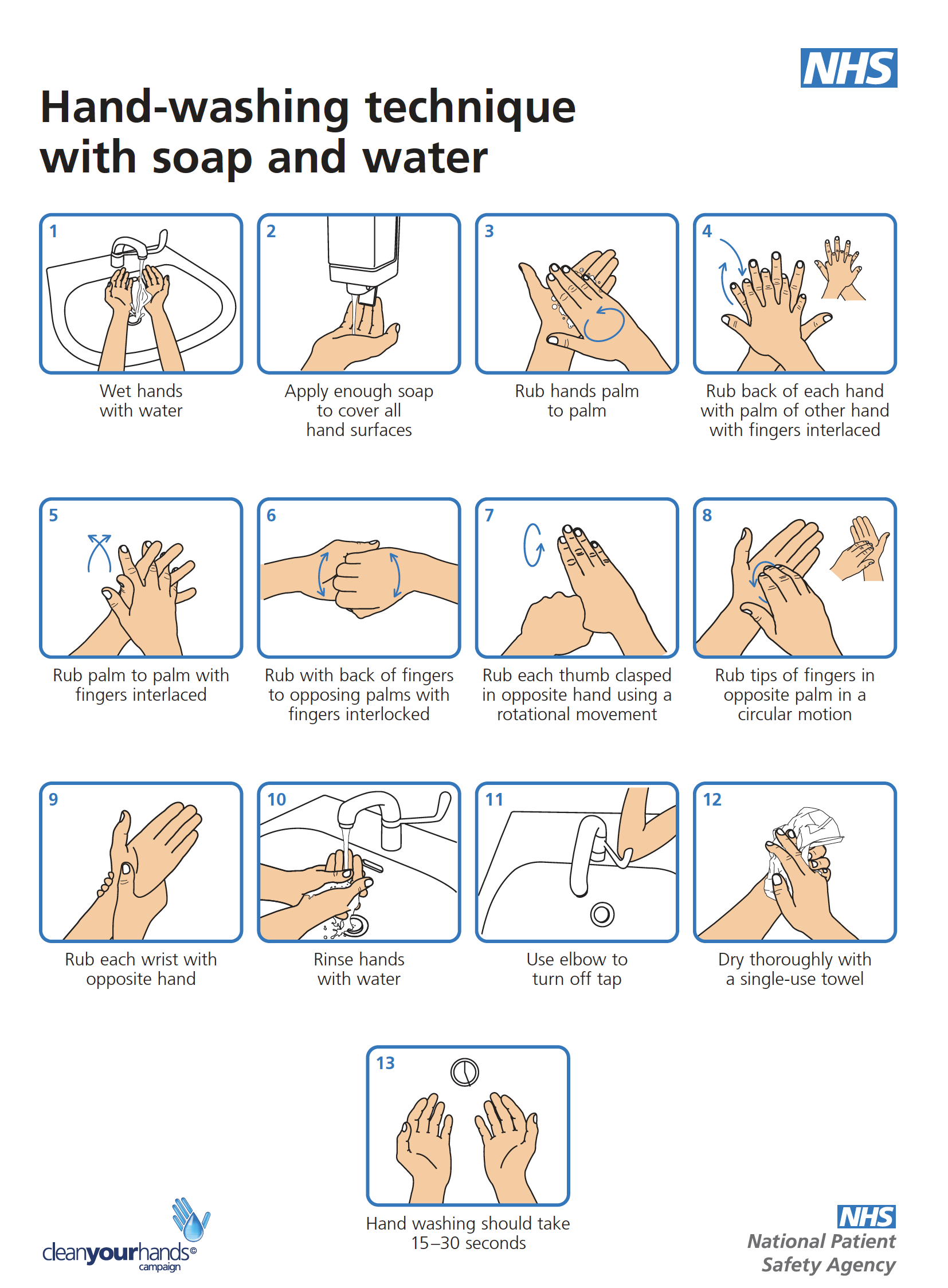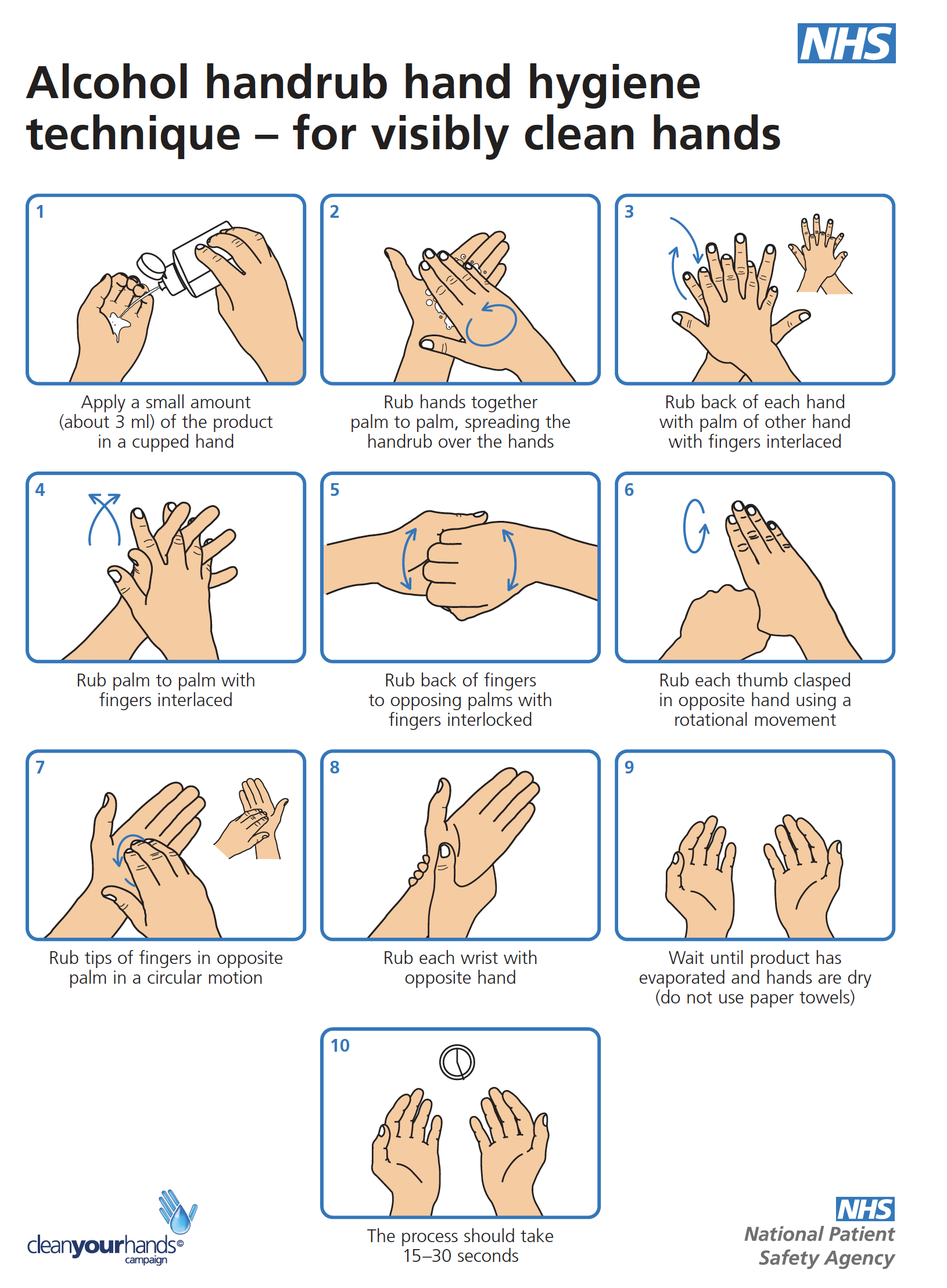You will be asked to sanitise your hands on entering the clinic and also on your way out before you leave the treatment room or gym area. This is to prevent any possibility of transmission of COVID-19.
We also recommend that you thoroughly wash your hands before you leave your home and again on your return.
Handwashing remains the No. 1 tip for preventing the spread of Coronavirus (COVID-19). It’s common sense and it works. However, it must be done properly and with soap and water. When soap and water are not available, the next best option is to use an alcohol-based hand sanitizer.
Proper handwashing not only reduces the spread of Coronavirus (COVID-19), it can prevent the spread of other viral illnesses such as cold and flu. Handwashing also reduces the risk of getting other easily spread infections, such SARS (severe acute respiratory syndrome) and MERS (Middle East respiratory syndrome).
When should you wash your hands?
- after using the toilet or changing a nappy
- before and after handling raw foods like meat and vegetables
- before eating or handling food
- after blowing your nose, sneezing or coughing
- before and after treating a cut or wound
- after touching animals, including pets, their food and after cleaning their cages
Washing your hands properly removes dirt, viruses and bacteria to stop them spreading to other people and objects, which can spread illnesses such as food poisoning, flu or diarrhoea.
It can help stop people picking up infections and spreading them to others.
It can also help stop spreading infections when you’re visiting someone in hospital or another healthcare setting.
Hand Sanitiser
When dealing with diarrhoea and vomiting illnesses, soap and water should always be used. In this case, the use of hand sanitiser is NOT recommended.
Hand washing sinks or hand sanitiser dispensers are located at the entrances to each ward and on all wards and clinical areas as well in many public areas of the hospital. Hand sanitiser is usually situated at strategic locations within the clinical area near to where patient care is given.
Good hand hygiene habits are mandatory for staff but patients are also encouraged to make use of these provisions in order to reduce the risk of infectious germs being transferred around the clinic on their hands. It also reduces the risk of an infection being transmitted to the individual themselves.


